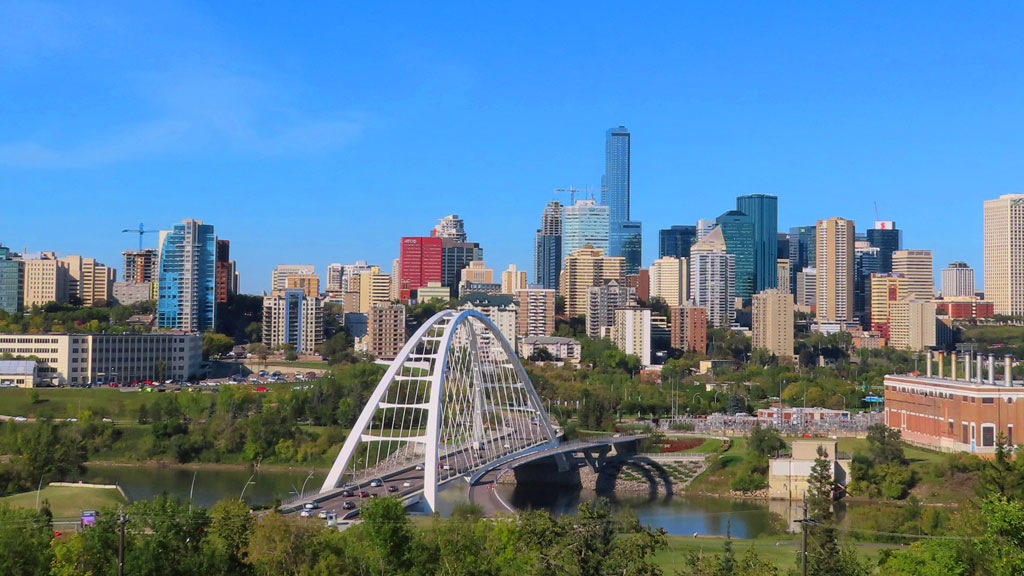Two panellists at a recent Ontario-based proptech conference made a convincing case that Smart Cities are more than the sum of their parts, with Edmonton offered up as a prime example of how an enlightened Smart City policy incorporates a breadth of participants.
Roopesh Patel, director of IoT with Rogers for Business, and Shkya Ghanbarian, vice-president of business development with Eddy Solutions, served as presenters for a webinar titled Intelligent Infrastructure for an Intelligent World. The session was held as part of the IoT PropTech Summit held earlier this month.
A central premise of the discussion was that smart buildings are the cornerstone of a successful Smart City. To build a Smart City, it’s essential to build the appropriate framework, Patel said.
“Now, I’m looking at frameworks,” he recounted. “I came across the Smart City Edmonton framework. For me, it was a holistic framework where it talks about collaborating with private organizations, residents and technology partners around how to itemize and use data and technology.
“You also need to incorporate the development of policies. You’d have policies and need to accommodate for these new innovative changes coming along the way.”
Edmonton’s Smart City Strategy was developed under former mayor Don Iveson and defined a Smart City as not just about technology, “It is about creating and nurturing a resilient, livable and workable city through the use of technology, data and social innovation.”
The plan has won numerous awards.
“If a Smart City is built properly, it will provide different value to different stakeholders,” said Patel.
“Officials go, ‘hey, how do I digitize my city business in terms of allowing people to search for records online, applying for permits?’ And then from the citizens’ perspective, it’s interesting the two key things that come up, ‘how do I get around more efficiently in my city? How do we use the technology to help drive down crime?’
“When you take a step back, every single person’s view on Smart Cities is right.”
Patel said a true Smart City has smart manufacturing, smart government, open data, mobility, smart digital citizens, a smart energy grid, and smart buildings and transportation. These elements create a framework in which participants join together to develop partnerships, collecting and securing data and making data-driven decisions, thus improving the lives of residents.
From the developer’s point of view, Patel said, the autonomous smart building is the “secret sauce” for building a Smart City. It is rapidly becoming apparent that the future belongs to structures with multiple sensor networks connected through the Internet of Things.
Smart, sustainable infrastructure can help improve energy and resource efficiency and enable the transition toward renewables and decentralized power generation, while ensuring resilient and reliable power supply, Patel argued.
Developers, reacting to the demands of insurers, are reducing risk using proptech, primarily in addressing threats posed by water, theft, fire and CO2 risk. The smarter a building and city are, the safer it is in terms of risk.
“These technologies that were once considered revolutionary are steadily becoming the norm in today’s leading buildings,” said Ghanbarian, listing software that manages electricity reduction, maximizes building security and incorporates smart sensors for lighting and water as being in great demand.
“When it comes to all the stakeholders and commercial multi-residential assets, everybody from end-user residents and tenants to property managers, asset managers and insurers are gaining value along the chain.”
The value propositions are about creating a smarter environment that will help owners avoid losses and resident displacement as well as business interruptions, and avoiding unnecessary expenses, Ghanbarian said.
“They’re always saying water is the new fire because of the stats and the frequency of the claims,” she remarked. “Water damage accounts for nearly 60 per cent of all real estate claims by percentage and 71 per cent of all real estate built-up claims by dollar, and in addition from a residential perspective it accounts for about 50 per cent of residential claims. So this represents the largest and most persistent risks to the assets of operators, owners, insurers and residents.”
Buildings with ample smart technology is able to attract more residents, said Patel, and they are more valuable assets.
“From a developer’s perspective, they’re able to charge a premium when selling the developments because they’ve embedded smart technology that will make a resident’s and employee’s life easier and more productive.”
Follow the author on Twitter @DonWall_DCN.










Recent Comments